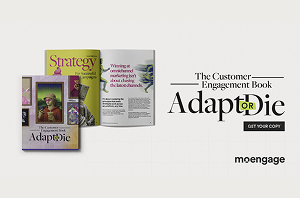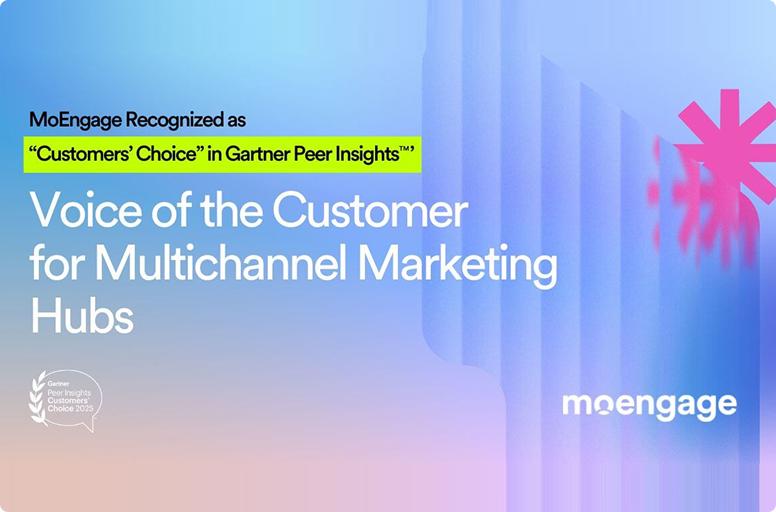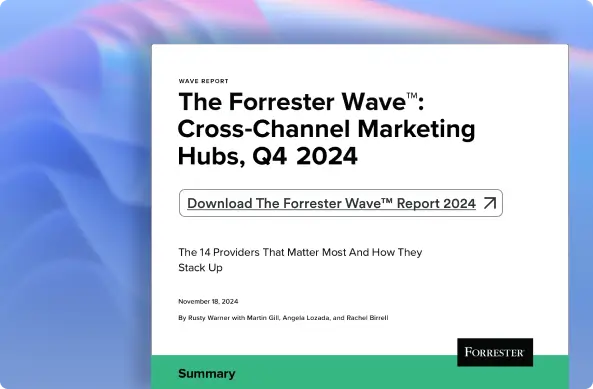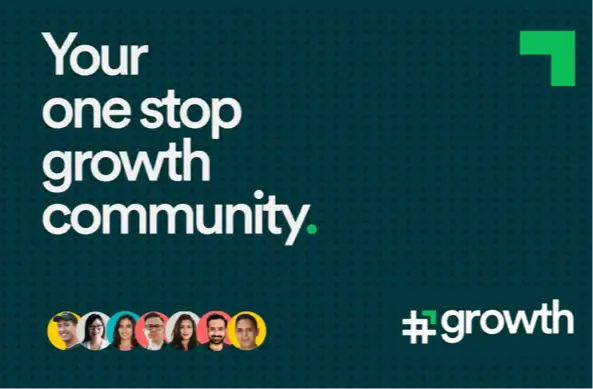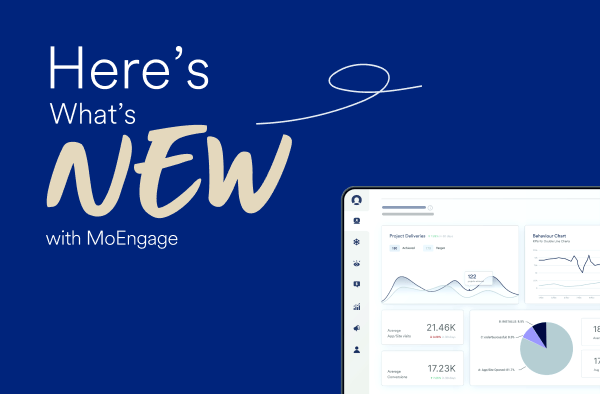6 Ways Intelligent Engagement Platform Helps Sales and Customer Success
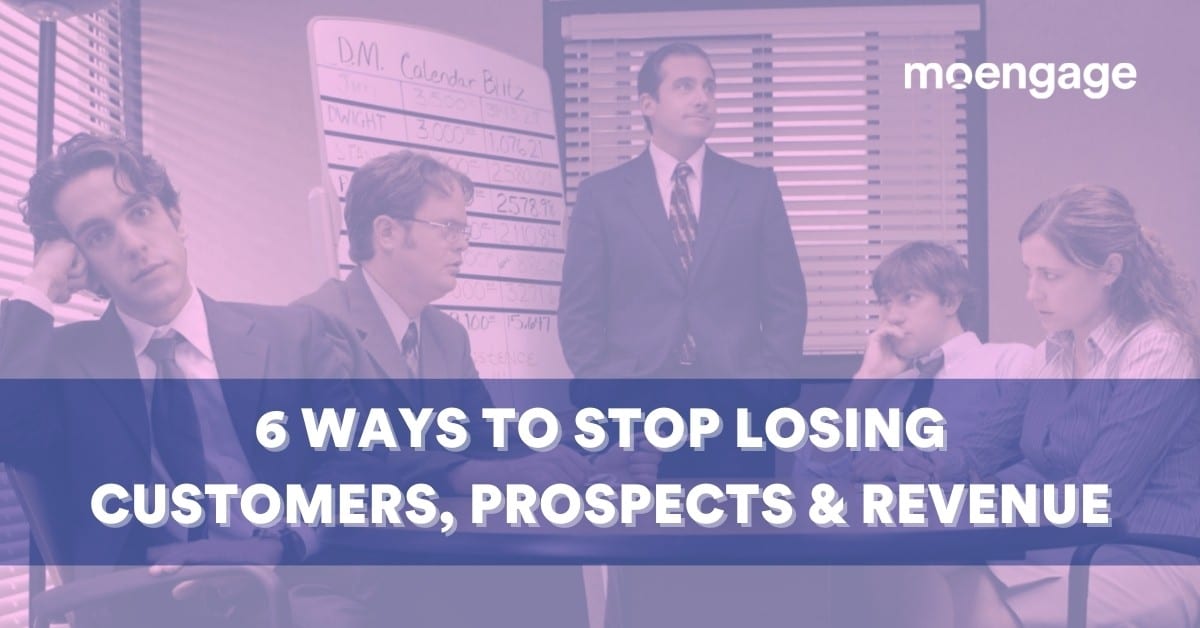
Reading Time: 7 minutes
🚨🚨Don’t read this if your CSAT score is above 60%, NPS score is more than 70, sales revenues are through the roof, and you don’t want an engagement platform that maximizes sales and customer success🚨🚨
Now, that is out of the way, are you ready to learn how an intelligent customer engagement platform can maximize your sales revenue, boost repeat purchases, provide a great customer experience, improve upsell and cross-sell opportunities, dissolve silos and improve accountability?
Here’s what’s in store and how an engagement platform can help your sales and customer success teams:
- Overview of an intelligent customer engagement platform and how it acts as a growth enabler
- Snapshot of the capabilities which are actually the prerequisites while selecting an engagement platform
- Role of the engagement platform in driving efficient revenue growth, deliver seamless CX, improve loyalty, and reduce churn
- Effect on shortening purchase cycles and carving a unique brand identity
- Use cases, examples, and insights from leading global brands like Nike, Airbnb, and Starbucks among others
So, let’s take a look at how an intelligent customer engagement platform can help your sales and customer success teams.
Creating an ecosystem that increases accountability, dissolves siloes, and enables faster growth
Without a platform that tracks interdepartmental functions, silos are created with no visibility into each other’s work. Teams don’t collaborate and hence don’t understand the high-level impact of their work. This leads to prospects being bounced around as teams are unsure of their needs. Often, due to no one taking charge, a sales opportunity falls through. No accountability, minimal transparency, reduced collaboration, manual workflow creation, and inability to provide personalized experiences affect the overall efficiency and negatively impact the sale success, ultimately causing revenue loss.
Do you want to miss out on big-ticket prospects and lose customers?
If the answer is a resounding no, then you definitely need a customer engagement platform!
👉👉 Check out the other warning signs that you need an intelligent engagement platform ASAP!👈👈
Due to communication being scattered across various channels, it further leads to inefficient and unproductive business processes. A customer engagement platform automates most manual and repetitive processes, reducing the burden on teams by consolidating all customer interactions in one place. This leads to improved productivity, efficiency, and revenue per salesperson. If properly implemented, the right customer engagement platform breaks down silos, breeds collaboration, helps you better understand customer behavior, improves segmentation, drives higher conversions, and boosts retention.
With much-needed visibility into customer interaction and lifecycle, sales and customer success teams can now address customer needs better, understand why drop-offs are happening, and improve accordingly. With an engagement platform in place, you can automate follow-ups, seamlessly pick up nurture programs by leveraging data and insights collected, and effectively restart cold conversations.
Ultimately, you can not only leverage previously untapped selling potential but also improve customer satisfaction. Low satisfaction scores, increasing complaint volume and negative responses to surveys might indicate a poor experience. The reason could be something as simple as not targeting preferred channels. For instance, if a customer prefers to be reached via mobile push and you send an email, it not only annoys the user but also accounts for a poor customer experience.
Customer Engagement Platforms provide you with insight into customer preferences, analyze where you’re going wrong, thus helping in targeting the right user segment on the right channel, improving customer satisfaction rates.
Sounds good, amirite?!
Such a platform helps your sales and customer success teams efficiently respond to inquiries, personalize, and test campaigns to ensure optimum customer engagement. This solution also aids in streamlining account-based revenue teams by improving efficiency across acquisition, retention, up/cross-sell, and expansion. In summary, a customer engagement platform that centralizes, tracks, and analyzes every interaction across the customer journey helps in providing a personalized and delightful experience.
Capabilities of an intelligent customer engagement platform your sales and customer success can leverage
- Enables brands to monitor customer journeys and figure out relevant engagement opportunities
- Delivers targeted communication by deducing patterns from behavioral insights
- Helps customer service teams provide relevant communication by leveraging user data
- Creates smart and relevant user segments to provide a personalized experience
- Frames productive workflows for better collaboration and information sharing across teams, thus increasing the efficiency of business processes
- Optimizes omnichannel engagement and maintains consistency in cross-channel communication viz. email, SMS, push, live chat, social platforms etc.
- Sets goals and metrics for engagement campaigns and measures the results
By streamlining workflows, improving collaboration, and automating repetitive tasks, a Customer Engagement Platform allows your customer service teams to focus on strategies that drive long-term growth. In the absence of a Customer Engagement Platform, your teams end up spending a great deal of time and effort on optimizing engagement activities. By simply integrating an engagement platform, you can improve your team’s efficiency to make data-backed decisions and boost customer engagement metrics multi-fold.
6 ways an engagement platform can boost your sales and customer success functions
1
Driving efficient revenue growth: The data-driven processes enabled by a customer engagement platform helps sales and customer success teams understand interactions and measure actions that lead to revenue uplift. Using data science, machine learning, multivariate testing, and conversation analysis, sales and customer success teams are now able to map revenues to each action, identifying what works and what doesn’t. The focus can then be shifted to actions that add the most value to the bottom line.
2
Delivering best-in-class customer experience: 93% of customers are likely to make repeat purchases from brands that offer excellent experience and service. Engagement is very much a part of the customer experience where users expect businesses to interact with them and address their concerns. The idea is to consistently dialogue with customers across the channels that they’re most active on and deliver value. By automating grunt work, streamlining workflows, and providing behavioral insights, a Customer Engagement Platform allows teams to focus on various user segments and identify gaps to add value, thus providing a seamless and delightful experience.
3
Improving loyalty and building strong customer relationships: Are you struggling to build a healthy and long-lasting relationship with your customers?
That’s what she said!
Try this! Effectively engage them across all touchpoints instead of doing the bare minimum required for a conversion.
Consistent and relevant interaction lets your customers know that you care about their needs, priorities, and aspirations. Going beyond your product offering and adding real value to their life is the key to building a community of brand loyalists who will be highly engaged with your brand irrespective of your product/service pricing. Highly absorbing and regular communication with your customers will ultimately breed trust and create a community of satisfied customers who will vouch for your product/service and act as influencers promoting your business across forums.
4
Increasing subscriber base, arresting churn, and boosting retention: By setting up frequent and relevant communication with your audience, a Customer Engagement Platform helps users realize the value your brand offers, thus increasing the chances of subscription. Consistent communication will help you win over customers or, at the very least, make them interested in your offering. Frequent interaction also leads to customers better recognizing and connecting with a brand than the one they seldom hear from.
It is no surprise that engaged customers to contribute significantly to a brand’s revenue. In fact, research conducted by Bain & Company states that a 5% increase in customer retention can yield more than a 25% rise in profits. There is no better retention tactic than actively engaging and nurturing customers. The comprehensive lifecycle journey mapped out by a Customer Engagement Platform helps in identifying unresolved pain points and reasons for likely drop-offs, thus arresting churn and improving retention.
5
Shortening purchase cycles and improving cross-sell & up-sell opportunities: A properly executed strategy with the help of an engagement platform can shorten sales cycles, convert prospects, and ultimately reduce the burden on sales.
An engagement platform can help your sales team shorten purchase cycles unless of course, you sell like this:
 Jokes apart, run user education campaigns among your customer base while addressing their needs. Different campaigns showcasing the value you add (compared to competitors) can be sent to audience segments based on their buying journey. Consistent engagement will increase brand recollection and positively impact purchase decisions.
Jokes apart, run user education campaigns among your customer base while addressing their needs. Different campaigns showcasing the value you add (compared to competitors) can be sent to audience segments based on their buying journey. Consistent engagement will increase brand recollection and positively impact purchase decisions.
The data collected and analyzed by customer engagement platforms help you better understand user behavior and preferences, thus allowing you to personalize recommendations and better target up-sell and cross-sell opportunities. This approach not only provides super-relevant recommendations but also improves average lifetime value and order size.
6
Carving unique brand recognition: A well-planned omnichannel engagement framework, continuous, and unique communication will help customers differentiate your brand from others. In an era of widespread digital noise, every targeted asset such as a newsletter, blog, and social media post will act as a weapon in forging a unique brand identity and recognition.
How do leading global brands engage, retain, and create brand loyalty?
If you are still on the fence about adopting a customer engagement platform to improve customer experience, increase revenue contribution, and close big-ticket sales, here’s how the industry leaders across geographies are doing it:
|
🎯 An industry leader like Starbucks has a very unique way of breeding brand loyalty – making customers feel special. 🎯 Starbucks introduced Reserve Roasteries across the world to provide customers an immersive brewing experience. 🎯 The customers get a chance to speak with specialists, sample a variety of flavors. and experience the brewing process. 🎯 By giving this insider look, the company not only engaged the users but also took their experience beyond just a cup of coffee! |
One of the biggest reasons behind the massive waves created by Airbnb in the hospitality industry is their extensive research into understanding fundamental customer wants. This successful model has since been replicated by their competitors across the globe. Airbnb translated that understanding into service by going beyond hotel experience and resolving traveler needs and a sense of belonging. This model of belonging and trustworthiness along with a sense of adventure continues to earn them goodwill.
|
🎯 Nike Hong Kong illustrated the importance of segmenting audiences into definitive groups. 🎯 The segmentation process yielded a significant revenue uplift, a massive 110% increase in campaign conversion rate with a 32.5% improvement in website visits. 🎯 The brand ran targeted welcome, cart, and browse abandonment campaigns based on purchase history, device preference, and lifecycle stage. 🎯 Instead of relying on guesswork, Nike HK experimented with personalized recommendations on online stores in real-time. |
With an ACSI (American Customer Satisfaction Index) score of 80, Hilton regularly features among the list of the best hotels in the world. The brand achieved this by providing incredibly personalized service and a seamless connection between offline and online interaction. With the introduction of Connected Rooms, which remember your preferences, viz. favorite TV channels, room temperature, light settings, and other automatic adjustments every time you check-in.
|
🎯 Earning an American Customer Satisfaction Index score of 86 in 2019, Chick-fil-A tied for the best overall brand across industries. 🎯 By leveraging a high-quality app for mobile ordering, the brand resolved in-person management of busy drive-throughs during rush hour. 🎯 Chick-fil-A also demonstrated its resolve towards sustainability by reducing waste and sourcing antibiotic-free chicken and cage-free eggs. |
What should you do next?
- Check out our two-volume customer engagement buyer’s guide to get access to more insights and an exhaustive selection criteria among other fun stuff!
- Understand how we got here in the first place! Explore the behavioral shifts that define modern teams and purchase path
- Learn how you can turn your organization into a customer-centric one in 11 simple steps!
- Still can’t decide if you should choose a point solution or an integrated platform? Read our detailed resolution blog!
- Should you build or should you buy an engagement platform? Check out how you can approach and resolve this debate.
- Now that you’re aware of the advantages of having an intelligent engagement platform, here are 10 questions to help you choose one!

